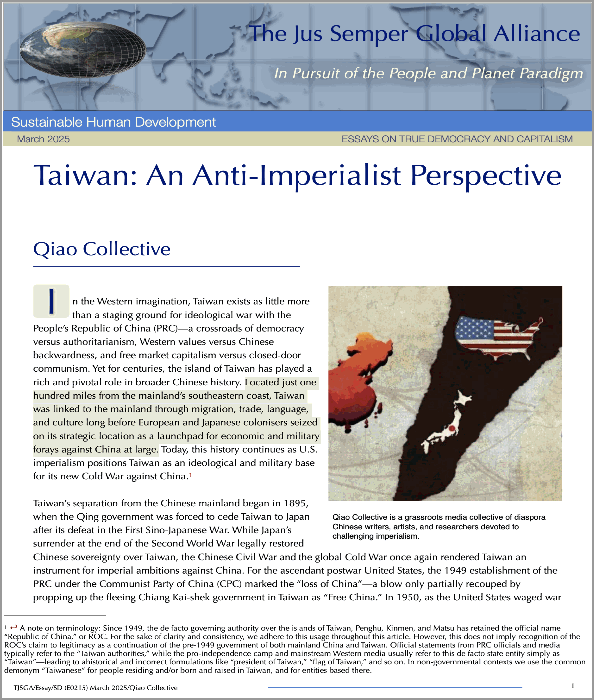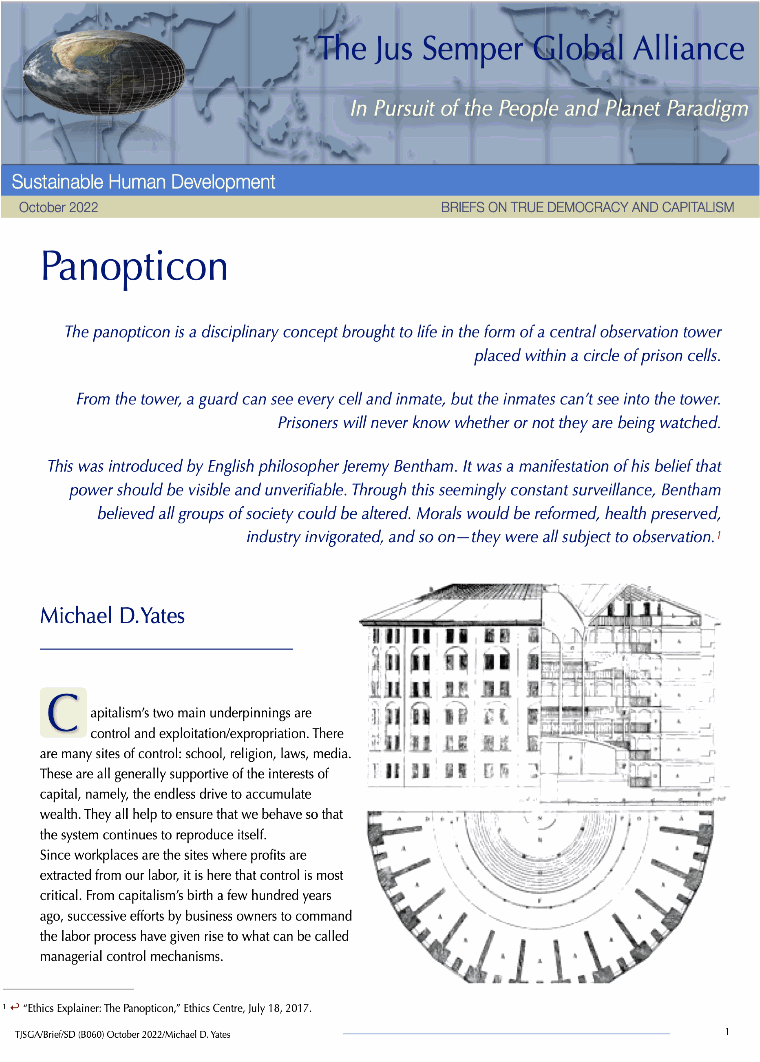The panopticon is a disciplinary concept brought to life in the form of a central observation tower placed within a circle of prison cells. From the tower, a guard can see every cell and inmate, but the inmates can’t see into the tower. Prisoners will never know whether or not they are being watched. This was introduced by English philosopher Jeremy Bentham. It was a manifestation of his belief that power should be visible and unverifiable. Through this seemingly constant surveillance, Bentham believed all groups of society could be altered. Morals would be reformed, health preserved, industry invigorated, and so on—they were all subject to observation.
Michael D. Yates Managerial control aims to create a labor process in which the one active element, human labor power, is as limited as possible in its ability to interfere with capital accumulation. Businesses want the same predictability that can be expected from machines. If X-amount of labor power is hired, then Y-amount of output will be produced. This formula implies that workers must be conceived as machine-like parts that are combined with other inanimate entities to yield the product. How could this be anything but alienating? It is profoundly anti-human. It is not just that employers exploit labor. Rather, they consume workers, and in the process, deaden them. And when no more can be taken by capital, shells of human beings are simply disposed of, and fresh new ones put to work.
For a full read of this brief, click here or on the picture to download the pdf file. |

- © The Jus Semper Global Alliance
| Home |  | Resources |  | Economic Data |  | Panopticon |


